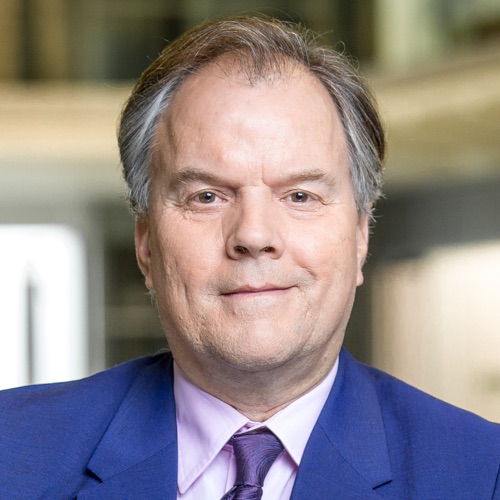 4m
4mMany in Lebanon think US president is ‘aiding and abetting’ Israelis says Beirut journalist
 Matt Frei
Europe Editor and Presenter
Matt Frei
Europe Editor and Presenter
We spoke to Rania Abouzeid, a Lebanese-Australian writer and journalist who’s based in Beirut, and began by asking her to describe the mood after the intense bombardment of the last two days and whether there’s a fear that Lebanon is becoming like Gaza.
Rania Abouzeid: That’s the fear here, especially when you listen to the Israelis. Yesterday, the IDF spokesperson was talking about Hezbollah hiding rockets in homes and that, to many Lebanese, that sounded like they were pre-emptively excusing the targeting of civilian homes. And we have seen entire families who were killed in their homes in the south. So that is absolutely the fear here that what has happened in Gaza will also happen here in Lebanon.
Matt Frei: Under the circumstances, and given the amount of firepower that Hezbollah has at its disposal, are you surprised that they haven’t done more in terms of retaliating against Israel?
Rania Abouzeid: Well, they have. They debuted another missile today, the Fadi-3. This was after they debuted the long range Fadi-1 and Fadi-2 over the weekend. So they’re slowly bringing out some of their heavier guns. But Hassan Nasrallah, the leader of Hezbollah, has said that he still has weapons that he hasn’t debuted yet. So we’ll have to wait and see. He has said that ‘the battlefield will do the talking’.
Matt Frei: But once again it feels as if Lebanon, which is an incredibly complex and quite divided society, is once again the brutal playground of other people’s interests.
Rania Abouzeid: Yes. I mean, to a certain degree, absolutely. That’s the neighbourhood that we live in over here. And it brings to mind an old Arabic saying that ‘my brother and I will stand against my cousin, and my cousin and I will stand against the stranger’.
Matt Frei: President Biden was here at the United Nations this morning giving quite an emotional speech and yet again calling for peace and restraint in the Middle East. But to many people, it seems as if the American president, with all his firepower parked in the region, has gone kind of missing in action on this one.
Rania Abouzeid: I’ll tell you that many Lebanese here don’t think that he’s missing in action. They think that he’s actively aiding the Israelis. I mean, that’s what they see. They hear the talk about urging calm in Lebanon and not to escalate and for both sides not to explode things into some sort of all out war. They hear the calls for the ceasefires in Gaza and then they see the Americans continuing to arm the Israelis and to provide political and diplomatic cover. So it’s not so much that they’re missing in action, it’s that they’re batting for one side.
Matt Frei: And is it your impression, Rania, that despite the rhetoric here at the United Nations, the Israelis are so determined to continue this and so is Hezbollah, for that matter. Your country is inexorably sliding towards something horrific that it simply can’t stop.
Rania Abouzeid: That’s the fear. It’s easy to start a war, but how do you contain it? Hezbollah, for its part, has said that it opened a support front to ease the pressure off of both Hamas and civilians in Gaza. And they’ve said that they will close the front if the war in Gaza ends. And Netanyahu said over the weekend that he’s added another goal, another war goal, and that is to return the displaced from northern Israel. But it’s unclear here how widening the war will help those people return. Hezbollah have said that widening the war will actually cause more displaced. And what we’re seeing is that Hezbollah has extended its attacks deeper into Israel. They have reached Haifa. That will presumably displace even more Israelis. So it’s unclear who’s going to put the brakes on and how.